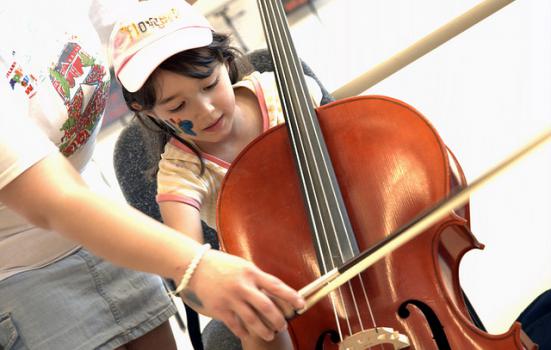The second year report on the In Harmony initiative finds positive engagement but a lack of conclusive data about the success of the programme.

Steve Snodgrass (CC BY 2.0)
Pupils participating in the In Harmony music programme at schools in deprived communities continue to enjoy music and are positive about their future prospects, according to the Year 2 interim report. The “sustaining power of In Harmony to maintain children’s musical engagement and enhance their future aspirations” is more evident this year than last, researchers found, but there is no evidence to suggest that the programme has had an impact on attendance levels. In the absence of a comparator school that isn’t running the In Harmony programme, they are unable to draw any firm conclusions about whether some negative opinions towards the programme are related to something more than a possible ‘maturation effect’, or that children are simply “recognising the hard work involved in playing an instrument”.
The report is the second in a set of three evaluations by the National Foundation for Education Research into whether In Harmony is achieving its goals and the findings will inform the future development of the initiative. Based on questionnaires completed at the end of each academic year from 2012-2015, the data reveals that most of the benefits reported by children completing the second year of the scheme remained statistically consistent with the previous year, though there was a slight decline in self-assurance, security and happiness; application of self to learning; enjoyment of school and learning; and the desire to play music in a group. In addition, 1/5 of students felt as if they were making little progress with their instruments, and 1/10 felt as if they were making little progress with their singing. The small but statistically significant falls cannot be attributed directly to the scheme due to the lack of a ‘control’ group. Various explanations are presented: it is a recognised trend among children that as they get older they may lose interest in school (the maturation effect); once something is no longer new, it’s no longer exciting (loss of a ‘start up’ effect); and as a child progresses, learning becomes harder and potentially less enjoyable.




